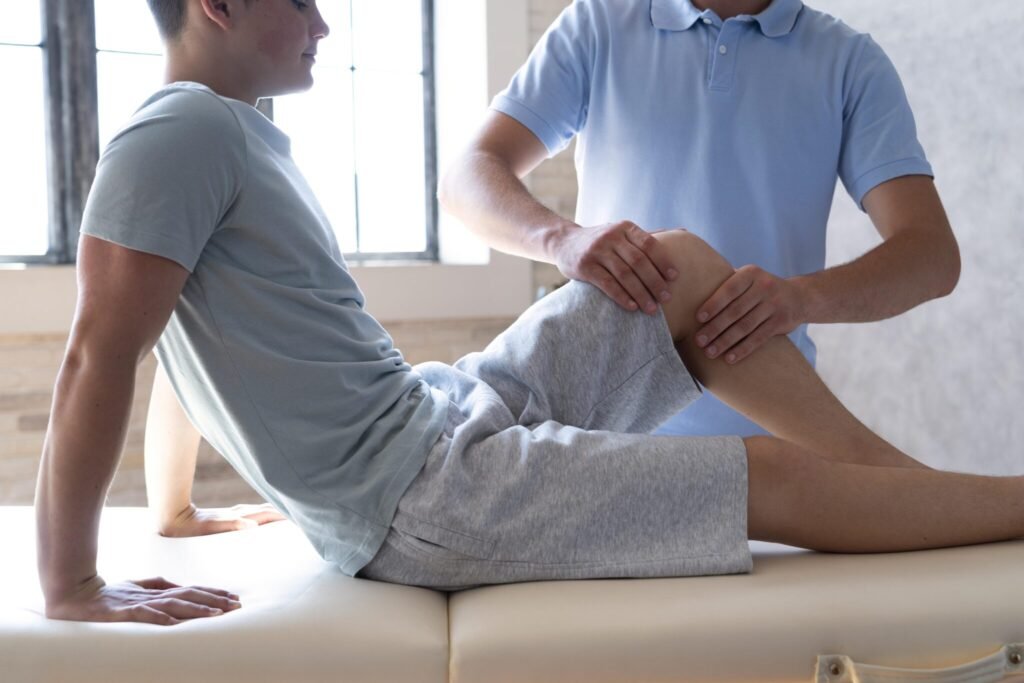
Role of Physiotherapy for stroke recovery
Stroke can have a noteworthy impact on an individual’s physical abilities, often resulting in difficulties with movement, balance, and coordination. Physiotherapy plays a vital role in stroke recovery by providing specialized interventions to enhance mobility, strength, and overall functional abilities. In this blog, we will explore the importance of physiotherapy in stroke recovery and how it contributes to a successful rehabilitation journey.
- Restoring Movement and Mobility: Physiotherapy focuses on restoring movement and mobility after a stroke. Through a variety of exercises and techniques, physiotherapists work with stroke survivors to regain control over affected limbs and improve overall mobility. These exercises may include range of motion exercises, strengthening exercises, and activities that target specific muscle groups. The aim is to retrain the body to perform functional movements and activities of daily living.
- Enhancing Balance and Coordination: Stroke can disrupt the body’s balance and coordination systems, making it challenging for individuals to maintain stability and perform tasks requiring coordinated movements. Physiotherapy interventions, such as balance training exercises, proprioceptive training, and coordination exercises, help enhance balance and coordination. These exercises focus on improving postural control, weight shifting, and overall stability, reducing the risk of falls and improving confidence in daily activities.
- Addressing Muscle Weakness and Spasticity: Muscle weakness and spasticity are common issues following a stroke. Physiotherapy interventions target these challenges by incorporating strength training exercises and stretching techniques. Strengthening exercises help rebuild weakened muscles, improve muscle tone, and enhance overall functional abilities. Stretching exercises help reduce muscle tightness and spasticity, promoting better joint mobility and flexibility.
- Retraining Motor Skills: Stroke often affects motor skills, making it difficult to perform specific movements and tasks. Physiotherapists use a variety of techniques, such as task-oriented training, mirror therapy, and functional electrical stimulation, to retrain motor skills. These interventions focus on repetitive practice, task-specific movements, and the use of external cues to facilitate motor relearning and improve functional abilities.
- Gait Training and Walking Rehabilitation: Regaining the ability to walk independently is a significant milestone in stroke recovery. Physiotherapy plays a crucial role in gait training and walking rehabilitation. Therapists utilize various techniques, including walking exercises, use of assistive devices, and gait retraining strategies, to improve walking patterns, balance, and overall walking ability. This allows stroke survivors to regain independence and participate more fully in daily activities.
- Pain Management: Many stroke survivors experience pain, such as muscle or joint pain, as a result of the stroke or altered movement patterns. Physiotherapy incorporates pain management strategies, including manual therapy, heat or cold therapy, and therapeutic exercises, to alleviate pain and improve comfort during the rehabilitation process.
- Education and Home Exercise Programs: Physiotherapists provide education and guidance to stroke survivors and their caregivers. They teach safe movement techniques, educate on energy conservation strategies, and provide home exercise programs tailored to the individual’s needs. This empowers stroke survivors to continue their rehabilitation journey outside of formal therapy sessions and maintain their progress over the long term.
Conclusion: Physiotherapy is an essential component of stroke recovery, addressing movement and mobility challenges, enhancing balance and coordination, addressing muscle weakness and spasticity, retraining motor skills, facilitating gait training and walking rehabilitation, managing pain, and providing education and home exercise programs. Working closely with a physiotherapist can help stroke survivors regain independence, improve functional abilities, and enhance their overall quality of life. If you or a loved one has experienced a stroke, consider incorporating physiotherapy as a key component of the rehabilitation process for optimal recovery.
Avanta Healthcare Rehabilitation Center is a leading provider of expert care in Bangalore, offering a wide range of services, including post and pre-surgery rehabilitation services for joint recovery, tracheostomy, and stroke recovery in Bangalore.
Ready to take the next step towards physiotherapy?
Contact Avanta Healthcare today and let our experienced team guide you towards a successful rehabilitation journey.

